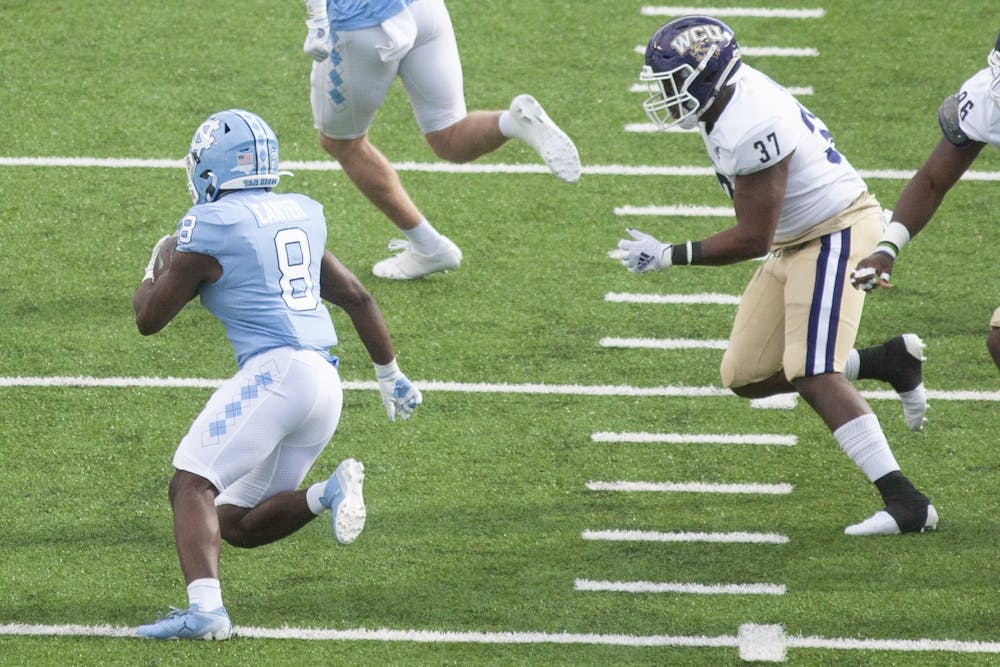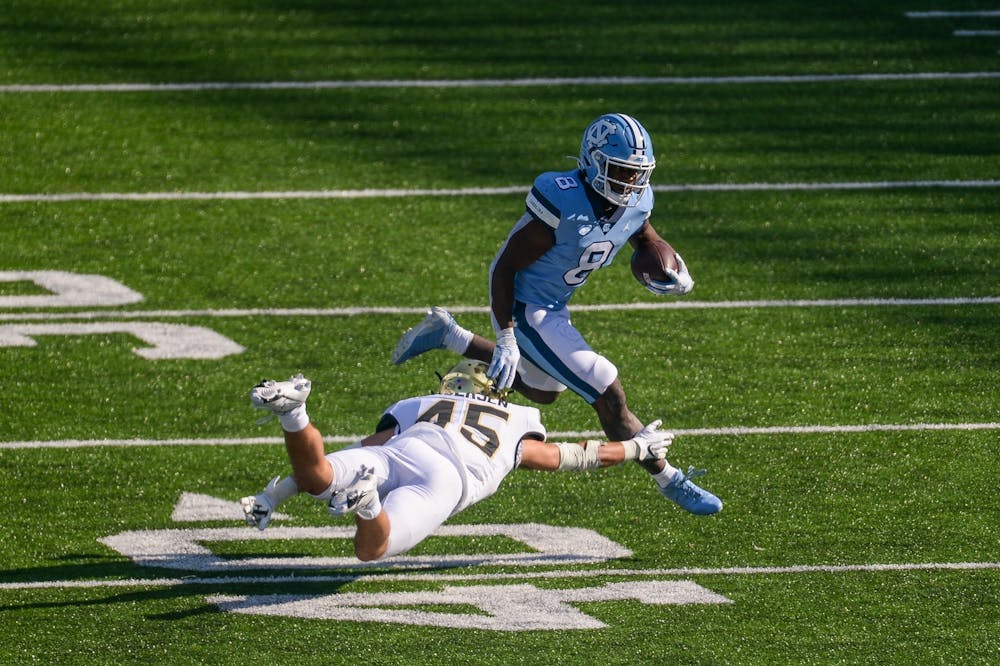Three touchdowns and a respectable 73 yards on just eight carries, all in one half of play. So ends senior running back Michael Carter's time in Chapel Hill.
Senior day might not have been very exciting for one of the North Carolina football team's most important players over the past four years — a 49-9 blowout with UNC up 39 points at the half doesn't cause much drama — but the moment is bittersweet.
The Tar Heels likely have two games left in their season, with Miami next week and an undetermined bowl game to be named later — but Saturday was the last time Carter will step in Kenan Stadium dressed in Carolina Blue.
To the outside world (read: the media), Carter has never been a man of many words. It's not out of timidity. Rather, he has always said what he felt he needed to, and left it at that.
The senior running back's impact on the Tar Heel program will likely go far beyond his on the field accomplishments, which are numerous. Many times this year, the coaching staff has pointed Carter out as a leader in the locker room.
"He has been the number one guy I've gone to to try and figure out, was it safe with COVID? Were we going to play games? Did the players want to play? Did they feel safe?" UNC head coach Mack Brown said after the win. "I would always call or text Michael first and say, 'Give me the pulse. What do you think the guys are thinking?'"
This past summer, Carter was one of the key figures in the locker room pushing to have conversations about racial injustice in America, following the murders of George Floyd and Breonna Taylor by police. He has spoken time and time again about how his goal during his time as a Tar Heel has been to make his team feel like as much of a family as possible.
In truth, Carter will stand as one of the key figures in the re-emergence of North Carolina football. Through tragedy of circumstance, he never got to experience the true success his talent was worthy of. There were flashes for UNC, including the top-five ranking this year, but two years spent on the abysmal last years of Larry Fedora's tenure led straight into the work of rebuilding a program.




